Latest News
UN urgently needs cash in Afghanistan, but struggles for solution
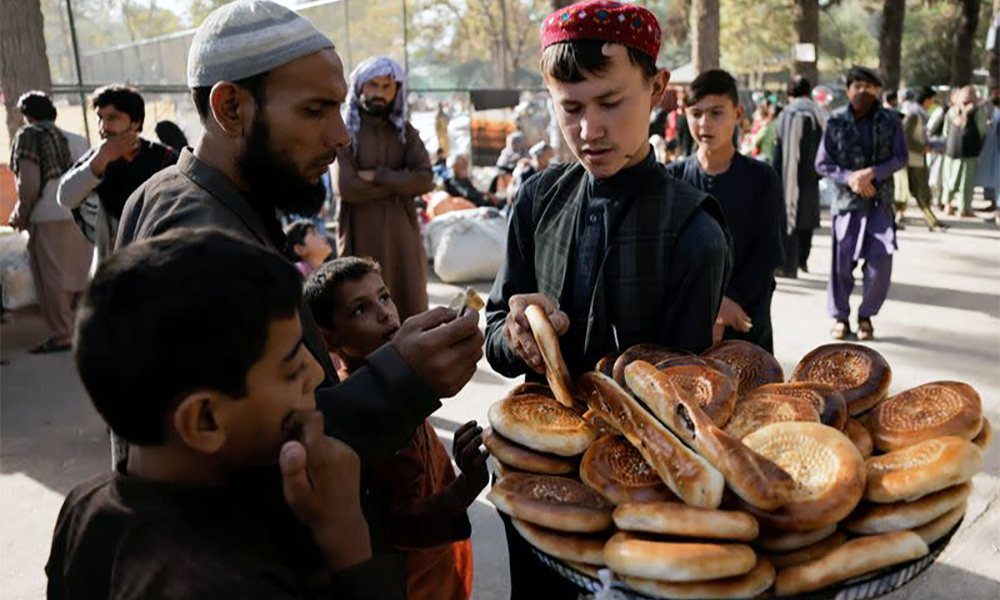
The United Nations cannot get enough cash into Afghanistan to deliver humanitarian aid to millions of people on the brink of starvation and is struggling to develop options to help stabilize the collapsing economy, U.N. officials said.
Ultimately political solutions are needed, a senior U.N. official told Reuters on condition of anonymity, an apparent reference to sanctions relief and for governments and institutions to free up billions of dollars of Afghan assets held overseas.
In the meantime U.N. agencies are scrambling to find ways to get large amounts of U.S. dollars into Afghanistan to combat a liquidity crisis that has taken hold since the Islamic Emirate of Afghanistan (IEA) ousted the Western-backed government in August.
The U.N. official shared with Reuters some of the options being suggested.
The delivery of U.S. dollars to Afghanistan has stopped since the IEA seized power and if countries or international financial institutions don’t step up then the United Nations might have to fill the gap, said the official.
One suggested option is using Afghanistan International Bank, which could bring in and store money, but there are issues with insurance, the U.N. official said.
The United Nations is also aware that no one option will work and several avenues to get enough cash into Afghanistan are needed, the official said.
U.N. Secretary-General Antonio Guterres has called for the International Monetary Fund to agree on waivers or mechanisms to get money into Afghanistan. The IMF has blocked the IEA from accessing some $440 million in new emergency reserves.
Much of the Afghan central bank’s $10 billion in overseas assets have been frozen as well, most of it in the United States. The U.S. Treasury has said there are no plans to release the money.
“We need to work together to make the economy breathe again and to help people survive,” Guterres said on Wednesday. “Injecting liquidity into the Afghan economy can be done without violating international laws or compromising principles.”
The United Nations has repeatedly warned that Afghanistan’s economy is on the brink of collapse and would likely further fuel a refugee crisis.
When asked about U.N. efforts to get cash into Afghanistan, Mary-Ellen McGroarty, head of the World Food Programme in Afghanistan, told reporters on Tuesday: “The U.N. collective is looking at what potential solutions we could have, but flying in money to the country is not on the table yet.”
“What we are using at the moment is the limited liquidity that is in the country,” she said. “But the longer this goes on … we’re finding it’s becoming more and more difficult.”
Some 8.7 million people are “one step away from starvation,” said McGroarty, adding: “There is a tsunami of destitution, incredible suffering and hunger spiraling out of control.”
The IEA is facing growing international pressure for an inclusive and representative Afghan government and to uphold human rights, particularly those of women and girls in return for international recognition and freeing up aid and reserves.
Donors and institutions are also seeking to avoid running afoul of U.N. and unilateral sanctions on the IEA.
The United Nations is appealing for countries “to provide humanitarian financial exemptions to allow funds to reach aid organizations in the country,” said U.N. spokesman Stephane Dujarric, without naming names.
U.N. agencies and aid groups are currently using informal money-moving networks – known as hawalas – and small amounts of cash in banks to pay staff salaries and for other smaller scale purchases, Dujarric told Reuters.
“These modalities are not sufficient for the large scale operations requiring cash payments or cash assistance in-country, however,” said Dujarric, adding that the United Nations was talking to international financial institutions to find a solution that would expand aid operations.
A key part of U.N. plans to inject money into Afghanistan is by providing cash directly to poor Afghan families.
Latest News
IEA’s top security officials meet supreme leader
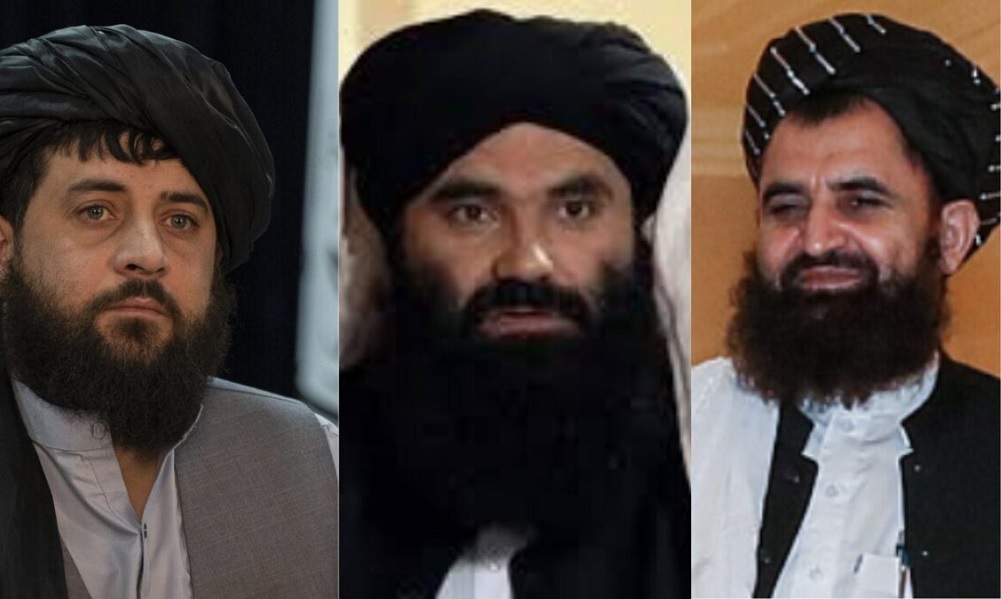
Senior security officials including Acting Interior Minister Sirajuddin Haqqani and Acting Defense Minister Mohammad Yaqub Mujahid met with Mawlawi Hibatullah Akhundzada, the supreme leader of the Islamic Emirate of Afghanistan, IEA’s spokesman Zabihullah Mujahid announced on Friday.
Mujahid said on X that the meeting, which took place in Kandahar province, presented the country’s security report.
He added that the proposals of the security institutions were listened to and they were given necessary instructions.
According to him, necessary decisions were taken to improve the order, equipping and capacity building of security institutions.
The meeting was also attended by Director of Intelligence Abdul Haq Wasiq, Deputy Defense Minister Abdul Qayum Zakir and Deputy Interior Minister Mohammad Nabi Omari.
Latest News
Afghanistan-Iran-Europe railway corridor activated

The Iranian Embassy in Kabul announced on Thursday that the Afghanistan-Iran-Europe railway corridor has become operational.
In a statement, the embassy said the first export shipment from Afghanistan has started its journey through the Afghanistan-Iran railway corridor to Turkey and Europe.
The corridor was activated with the presence of the Iranian Consul General in Herat and the governor of the province, the statement read.
The statement added that the activation of this corridor, with Iran’s cooperation, will contribute to the improvement of Afghanistan’s economy.
Latest News
Amnesty international urges Pakistan to halt Afghan deportations
Amnesty International said that all Afghan nationals are required to leave the cities of Islamabad and Rawalpindi by 31 March
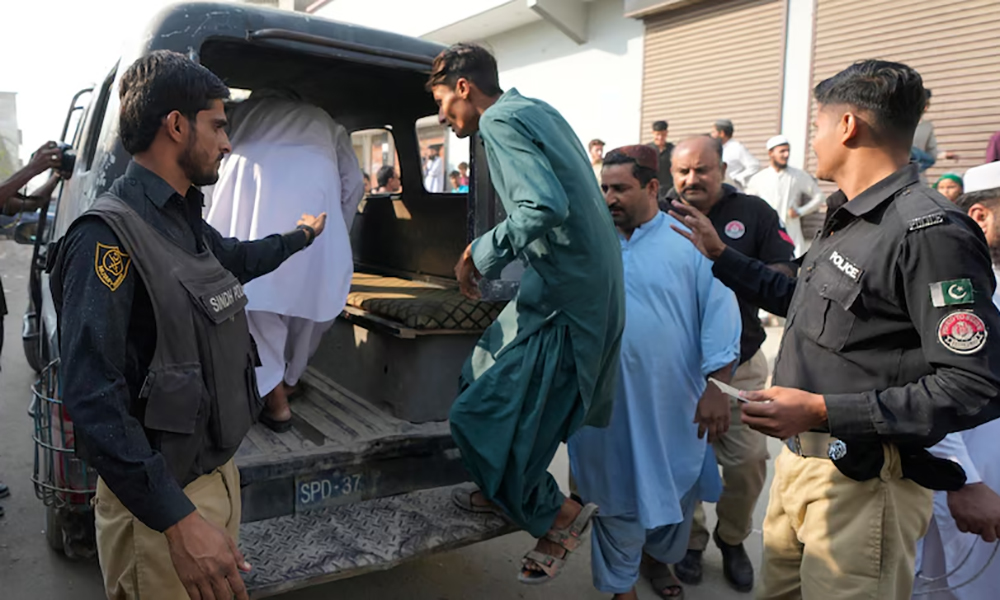
Amnesty International on Wednesday called on Pakistan to immediately withdraw its “Illegal Foreigners Repatriation Plan”, which primarily targets Afghan refugees, ahead of the authorities’ 31 March deadline.
Pakistani government has asked all “illegal foreigners” and Afghan Citizen Card holders to leave the country before March 31, warning they would otherwise be deported from April 1.
Amnesty International said that all Afghan nationals are required to leave the cities of Islamabad and Rawalpindi by 31 March
It said that “arbitrarily and forcibly expelling Afghan nationals, including refugees and asylum seekers, will only add to their plight”.
“The Pakistani government’s unyielding and cruel deadline, which is less than a week away, to remove Afghan refugees and asylum seekers from two major cities, resulting in the deportation of many at risk, shows little respect for international human rights law, particularly the principle of non-refoulement,” said Isabelle Lassée, deputy regional director for South Asia at Amnesty International.
The exact details of the Pakistan government’s ‘Illegal Foreigners Repatriation Plan’ used for deportations has never been made public, but it comes amid a campaign to wrongfully demonize Afghan nationals as so-called criminals and terrorists, Amnesty said.
Isabelle Lassée said that the Pakistani government is only making “a scapegoat of a community that has long been disenfranchised and fleeing persecution.”
Human rights lawyer Moniza Kakar pointed out that forcing Afghan refugees to relocate even within Pakistan is devastating for families. “Many PoR card holders are people who’ve been here for decades, asking them to relocate means you’re asking them to leave homes, businesses, communities and lives they’ve built for years,” she said.
Lawyer Umer Gillani, who has challenged the deportation orders in Pakistan’s Supreme Court and Islamabad High Court, argued that the March 31 deadline was not legally enforceable. “The official notification has not been issued under any particular law; it is just an executive instruction,” he stated.
Meanwhile, the International Organization for Migration (IOM) reported a sharp decline in Afghan returns and deportations during the first half of March. Between March 1 and 15, returns dropped by 67 per cent, while deportations fell by 50 per cent compared to the previous reporting period (February 16-28).
-

 International Sports5 days ago
International Sports5 days agoRCB bring fireworks to opening night of IPL 2025
-
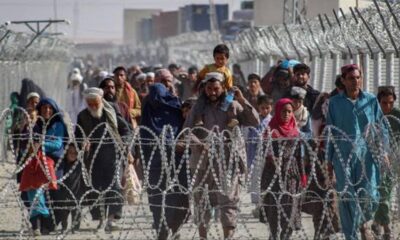
 Latest News5 days ago
Latest News5 days agoTorkham border reopens for pedestrians
-
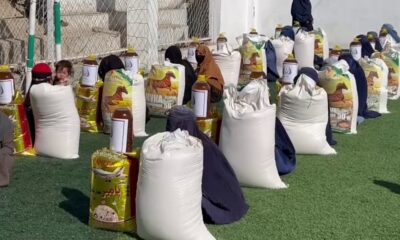
 Latest News5 days ago
Latest News5 days agoBayat Foundation distributes food aid to dozens of needy families in Balkh
-

 International Sports4 days ago
International Sports4 days agoIPL 2025: Sunrisers on a batting rampage; triumph over Rajasthan Royals
-

 Latest News4 days ago
Latest News4 days agoEU says girls’ education crucial for Afghanistan’s long-term prosperity
-

 Business5 days ago
Business5 days agoDeputy PM inaugurates launch of Arghandi Transport Terminal Project in Kabul Province
-

 Sport4 days ago
Sport4 days agoACB names Afghanistan A squad for tri-nation series
-
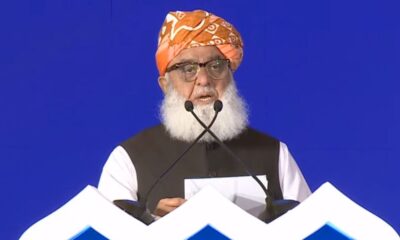
 Latest News5 days ago
Latest News5 days agoPakistan’s mistakes played significant role in rise of terrorism: Maulana Fazl-ur-Rehman
























